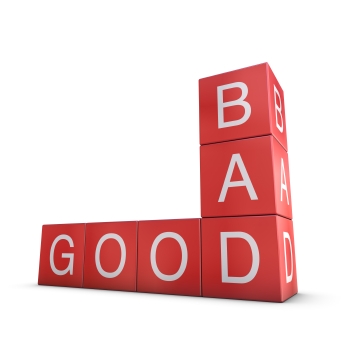I’ve previously discussed ESG investing and how investing in what you view as subjective morality is actually nothing more than old school stock picking. I get it – we want to do what’s right and make money. That’s all well and good, but as it pertains to secondary markets and stock picking this is mostly a fools errand and the investment management industry is taking advantage of this timely topic to sell what is nothing more than high fee active management sold as a do-gooder strategy that has its cake and eats it too. No. Just no.
The problem is, in addition to the fact that secondary markets are the wrong place to enact change, the same basic arithmetic of active investing applies here – the more active you are the more likely you are to underperform a correlated index. In recent years numerous claims have been made in the media about ESG funds outperforming a benchmark. In most cases the benchmark they are compared to is completely wrong. This benchmarking problem is rife across the financial industry and most investors don’t actually pick up on it because they don’t know how to benchmark a fund properly. So money pours into these funds because the investors don’t actually understand what they’re buying and the people rating them often don’t know what they’re talking about.
I was reading this Bloomberg article that claims that a bunch of ESG funds outperform their benchmarks. It sounds great – invest in morally right causes AND make more money than everyone else. If it sounds too good to be true then yes, you’re right. It is. So, I started looking at some of the funds and what do you know – the Bloomberg article benchmarks them all incorrectly. For instance, the first fund I looked at is the Ave Maria Growth fund. It trounces the S&P on a 1, 3 and 5 year basis because the S&P is a large cap core fund and Ave Maria is a Large Cap Growth Fund. But when compared to the Vanguard Large Cap Growth ETF Ave Maria is worse with a 5 year after tax return of 11.58% compared to 12.8% for Vanguard Growth. So, the fund is a closet index fund and Bloomberg benchmarked it incorrectly thereby making it look like the fund was beating something that it’s not actually comparable to. The Bloomberg story is similarly wrong about every fund, 7 of which perform worse than the Vanguard Growth ETF on a 5 year basis.
| 5 Yr After Tax Returns | |
| PNOPX | 9.71% |
| PGWAX | 10.11% |
| AVEGX | 11.58% |
| MFAPX | 12.18% |
| BIAWX | 15.83% |
| MGGPX | 15.80% |
| MIOPX | 13.20% |
| CSIEX | 10.14% |
| AMAGX | 11.63% |
| IMANX | 10.76% |
| VUG | 12.80% |
| SPY | 10.82% |
So, in an article claiming to find the 10 best performing ESG funds you actually have 7 funds that underperform their most highly correlated proper benchmark. And the 3 funds that do outperform seem to be a strange mix of international growth funds. And we know that picking the best performers from the past tends to be a poor way of finding future outperformance so even if you did pick these 10 funds thinking they outperform you’d have just a 30% chance of actually picking the 3 that did outperform. Good luck with that and have fun paying about 1% in fees all along the way.
Look, I completely understand. I want to invest my money, beat the market AND do what I feel like is right. But be really careful buying into the narrative about how ESG funds outperform. In most cases they aren’t being benchmarked properly and you’re just paying higher fees to chase performance that isn’t even as good as it’s advertised as.
Related: My View on ESG Investing
Mr. Roche is the Founder and Chief Investment Officer of Discipline Funds.Discipline Funds is a low fee financial advisory firm with a focus on helping people be more disciplined with their finances.
He is also the author of Pragmatic Capitalism: What Every Investor Needs to Understand About Money and Finance, Understanding the Modern Monetary System and Understanding Modern Portfolio Construction.

